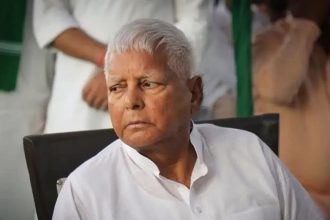
In early 2010, whispers of a potential mole at the Indian High Commission in Islamabad reached the highest levels of Indian intelligence. Just over a year had passed since the 26/11 Mumbai attacks, and the atmosphere was tense. The name that surfaced was unexpected: Madhuri Gupta, a mid-ranking diplomat, known more for her knowledge of Urdu and poetry than espionage.
An unlikely spy in Pakistan’s capital
Madhuri Gupta was serving as the Second Secretary (Press and Information) at the Indian High Commission in Islamabad. On the surface, she was an academic-minded official with a love for Sufi poetry and a seemingly mild temperament. But Indian intelligence agencies had started to notice troubling signs — classified information seemed to be making its way to Pakistan’s Inter-Services Intelligence (ISI).
The net tightens around the diplomat
Intelligence Bureau chief Rajiv Mathur flagged the matter to Research and Analysis Wing (R&AW) head KC Verma and Home Secretary GK Pillai. Instead of rushing to arrest her, authorities decided to extend surveillance. During this phase, Gupta was fed misleading data to observe if it would surface across the border. It did.
Soon after, Gupta was summoned to New Delhi under the pretext of working on media arrangements for the upcoming SAARC Summit in Bhutan. On April 21, 2010, she arrived in Delhi. The next day, at the Ministry of External Affairs office in New Delhi’s South Block, she was arrested by the Delhi Police’s Special Cell.
What the investigation revealed
Charged under the Official Secrets Act, Gupta was accused of leaking sensitive information, including the identities and roles of Indian intelligence operatives posted in Pakistan. Reports stated that she had compromised the identity of RK Sharma, R&AW’s Islamabad station chief, who operated under diplomatic cover.
“She disclosed names, personal details, and even spoke of covert routes to India,” Pankaj Sood, one of the investigating officers, has been quoted in media reports. According to a report in the Caravan magazine, the fallout from the exposure severely hampered Indian intelligence operations in Pakistan.
Caught in a honeytrap
Investigators concluded that Gupta had been lured into a relationship by a much-younger Pakistani operative named Jamshed, also known as Jim. In his 30s and half her age, he was allegedly tasked with seducing Gupta to extract state secrets. Another handler, Mudassar Raza Rana — linked to the then-Pakistani Interior Minister Rehman Malik — was also involved.
Their operation began with a seemingly innocent gesture: locating a rare book by Jaish-e-Mohammed chief Maulana Masood Azhar for Gupta. Over time, they gained her trust. Using a Blackberry phone and a home computer, Gupta allegedly kept in constant touch with her handlers.
Investigators discovered that she expressed intentions to convert to Islam, marry Jamshed, and move to Istanbul. Many of her messages reportedly reflected her fascination with Rumi, Urdu literature, and Sufism — interests her handlers used to manipulate her.
In March 2010, acting on instructions, Gupta is believed to have travelled to Jammu and Kashmir, seeking sensitive documents related to a 310 MW hydro-power project. Authorities later recovered 73 emails from two IDs allegedly set up for her by Pakistani agents.
Fall from grace and final years
In 2012, Gupta was formally charged under Sections 3 and 5 of the Official Secrets Act, which carry a sentence of up to 14 years. She spent nearly two years in Delhi’s Tihar Jail before being released on bail.
A Delhi court convicted her in 2018. By then, she had retreated to a quiet life in Bhiwadi, Rajasthan, where she awaited the outcome of her appeal in the Delhi High Court. She passed away in October 2021, at the age of 64, before her appeal could be heard.










